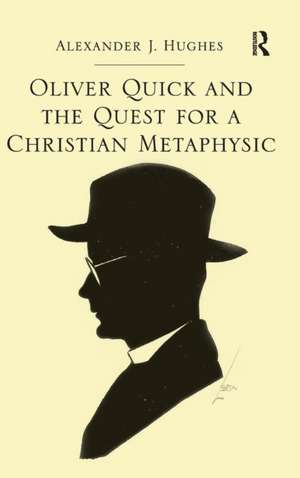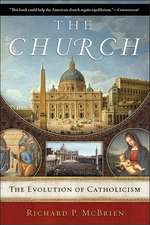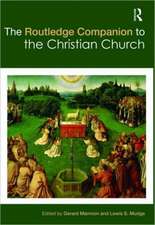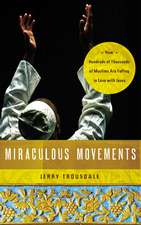Oliver Quick and the Quest for a Christian Metaphysic
Autor Alexander J. Hughesen Limba Engleză Hardback – 28 iun 2015
| Toate formatele și edițiile | Preț | Express |
|---|---|---|
| Paperback (1) | 389.38 lei 6-8 săpt. | |
| Taylor & Francis – 31 mar 2017 | 389.38 lei 6-8 săpt. | |
| Hardback (1) | 1005.01 lei 6-8 săpt. | |
| Taylor & Francis – 28 iun 2015 | 1005.01 lei 6-8 săpt. |
Preț: 1005.01 lei
Preț vechi: 1225.61 lei
-18% Nou
Puncte Express: 1508
Preț estimativ în valută:
192.33€ • 200.06$ • 158.78£
192.33€ • 200.06$ • 158.78£
Carte tipărită la comandă
Livrare economică 14-28 aprilie
Preluare comenzi: 021 569.72.76
Specificații
ISBN-13: 9781472452504
ISBN-10: 147245250X
Pagini: 236
Dimensiuni: 156 x 234 x 14 mm
Greutate: 0.59 kg
Ediția:Revised
Editura: Taylor & Francis
Colecția Routledge
Locul publicării:Oxford, United Kingdom
ISBN-10: 147245250X
Pagini: 236
Dimensiuni: 156 x 234 x 14 mm
Greutate: 0.59 kg
Ediția:Revised
Editura: Taylor & Francis
Colecția Routledge
Locul publicării:Oxford, United Kingdom
Notă biografică
Alexander J. Hughes studied theology at the Universities of Oxford and Cambridge. He has written on diverse topics including Anglican theology in the early twentieth century, liturgy, dialogue with Islam, and the Religious Life. Ordained into the Church of England in 2000, he is now the Archdeacon of Cambridge.
Recenzii
’Oliver Quick was one of the seminal minds of twentieth-century Anglicanism. In a readable and insightful study, Alexander Hughes does a brilliant job of opening up Quick's theology once again to the modern reader.’ Jeremy Morris, Trinity Hall, Cambridge, UK ’In this excellent and comprehensive introduction to the work of a much neglected figure in twentieth-century English theology, Alexander Hughes offers a beautifully clear and elegant account of an original form of philosophical theology that is not without relevance for the issues facing the church as it faces the question of making the Gospel relevant in the contemporary world. Quick’s critical orthodoxy, rooted as it is in the traditional Anglican balance between Scripture, Tradition and Reason, remains an attractive solution to the tensions of modern theology.’ Mark D. Chapman, University of Oxford, UK ’Oliver Quick’s critical orthodoxy, which has gathered dust in recent decades as various other theological tides have flowed and ebbed, re-emerges in this book as a vital resource for contemporary theology. His fresh and direct style, and the vigour of his thought, are brought beautifully to light by Alexander Hughes, whose clarity and energy serve his subject well.’ Ben Quash, King's College London, UK
Cuprins
Introduction; Part 1; Chapter 1 The Task of Theology; Chapter 2 The Chaos of Thought; Chapter 3 The Ground of Faith; Part 2; Chapter 4 The Dogma of the Incarnation; Chapter 5 Theological Prolegomena to Christology; Chapter 6 Theological Options for Modern Christology; Part 3; Chapter 7 The Sacramental World; Chapter 8 It Takes Time to Fulfil Eternity; Chapter 101; Conclusion;
Descriere
Now almost forgotten, Oliver Chase Quick (1885-1944) was one of the foremost and most widely read British theologians of his day. The first major study of his work, this book gives extensive attention to Quick's understanding of the task of theology, his christology, sacramental theology and doctrine of God. Expanding the narrative of twentieth-century historical theology, Hughes draws conclusions about longer-term shifts in English theology in the last century, making a particular case for the persistence and vitality of a philosophically oriented Anglican theology in the face of neo-orthodoxy and philosophical positivism.












